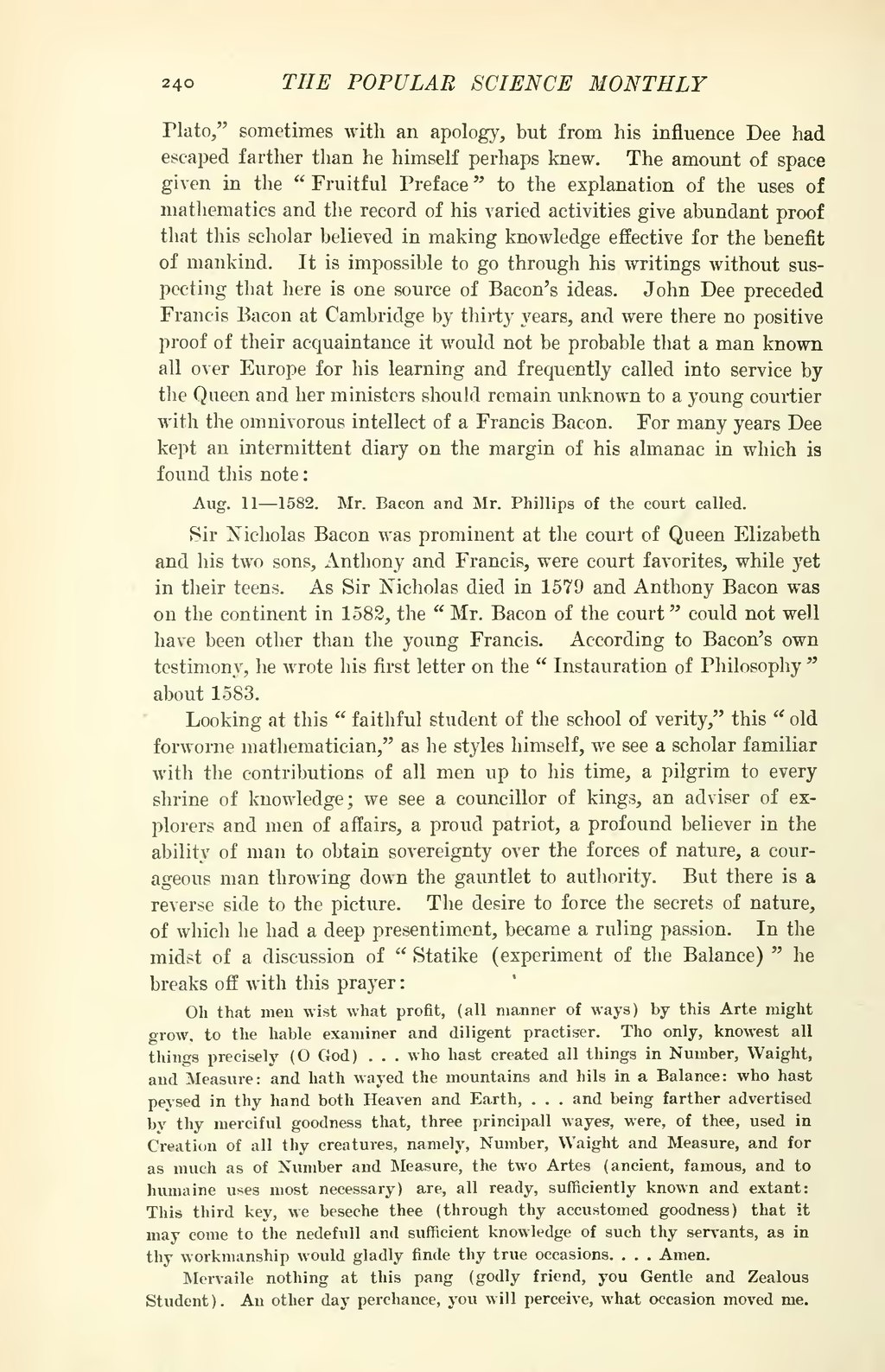Plato," sometimes with an apology, but from his influence Dee had escaped farther than he himself perhaps knew. The amount of space given in the "Fruitful Preface" to the explanation of the uses of mathematics and the record of his varied activities give abundant proof that this scholar believed in making knowledge effective for the benefit of mankind. It is impossible to go through his writings without suspecting that here is one source of Bacon's ideas. John Dee preceded Francis Bacon at Cambridge by thirty years, and were there no positive proof of their acquaintance it would not be probable that a man known all over Europe for his learning and frequently called into service by the Queen and her ministers should remain unknown to a young courtier with the omnivorous intellect of a Francis Bacon. For many years Dee kept an intermittent diary on the margin of his almanac in which is found this note:
Aug. 11—1582. Mr. Bacon and Mr. Phillips of the court called.
Sir Nicholas Bacon was prominent at the court of Queen Elizabeth and his two sons, Anthony and Francis, were court favorites, while yet in their teens. As Sir Nicholas died in 1579 and Anthony Bacon was on the continent in 1582, the "Mr. Bacon of the court" could not well have been other than the young Francis. According to Bacon's own testimony, he wrote his first letter on the "Instauration of Philosophy" about 1583.
Looking at this "faithful student of the school of verity," this "old forworne mathematician," as he styles himself, we see a scholar familiar with the contributions of all men up to his time, a pilgrim to every shrine of knowledge; we see a councillor of kings, an adviser of explorers and men of affairs, a proud patriot, a profound believer in the ability of man to obtain sovereignty over the forces of nature, a courageous man throwing down the gauntlet to authority. But there is a reverse side to the picture. The desire to force the secrets of nature, of which he had a deep presentiment, became a ruling passion. In the midst of a discussion of "Statike (experiment of the Balance)" he breaks off with this prayer:
Oh that men wist what profit, (all manner of ways) by this Arte might grow, to the liable examiner and diligent practiser. Tho only, knowest all things precisely (0 God). . . who hast created all things in Number, Waight, and Measure: and hath wayed the mountains and hils in a Balance: who hast peysed in thy hand both Heaven and Earth, . . . and being farther advertised by thy merciful goodness that, three principall wayes, were, of thee, used in Creation of all thy creatures, namely, Number, Waight and Measure, and for as much as of Number and Measure, the two Artes (ancient, famous, and to humaine uses most necessary) are, all ready, sufficiently known and extant: This third key, we beseche thee (through thy accustomed goodness) that it may come to the nedefull and sufficient knowledge of such thy servants, as in thy workmanship would gladly finde thy true occasions. . . . Amen.
Mervaile nothing at this pang (godly friend, you Gentle and Zealous Student). An other day perchance, you will perceive, what occasion moved me.
